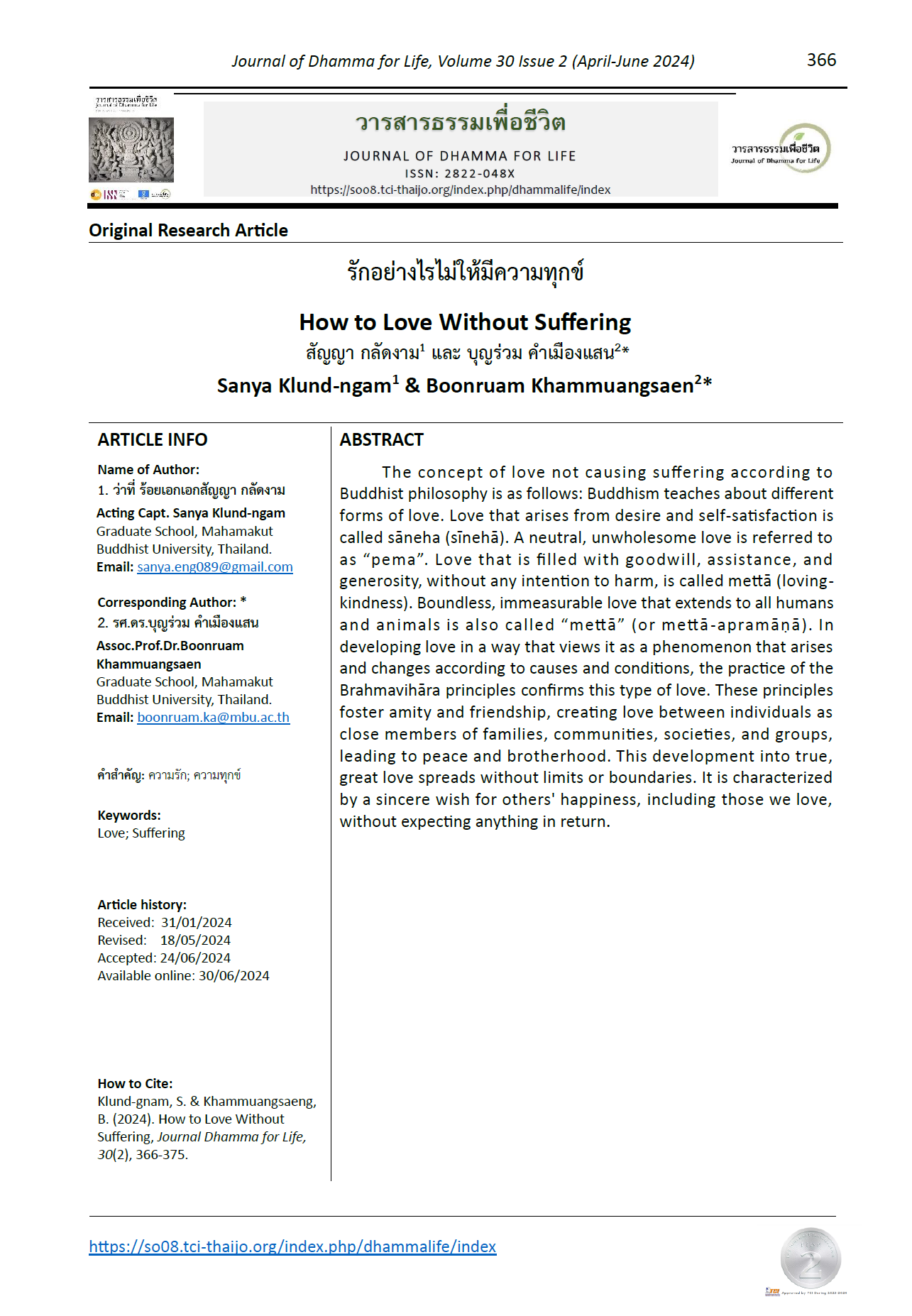How to Love Without Suffering
Main Article Content
Abstract
The concept of love not causing suffering according to Buddhist philosophy is as follows: Buddhism teaches about different forms of love. Love that arises from desire and self-satisfaction is called sāneha (sīnehā). A neutral, unwholesome love is referred to as “pema”. Love that is filled with goodwill, assistance, and generosity, without any intention to harm, is called mettā (lovingkindness). Boundless, immeasurable love that extends to all humans
and animals is also called “mettā” (or mettā -apramāṇā). In developing love in a way that views it as a phenomenon that arises and changes according to causes and conditions, the practice of the Brahmavihāra principles confirms this type of love. These principles foster amity and friendship, creating love between individuals as close members of families, communities, societies, and groups, leading to peace and brotherhood. This development into true, great love spreads without limits or boundaries. It is characterized by a sincere wish for others' happiness, including those we love,without expecting anything in return.


